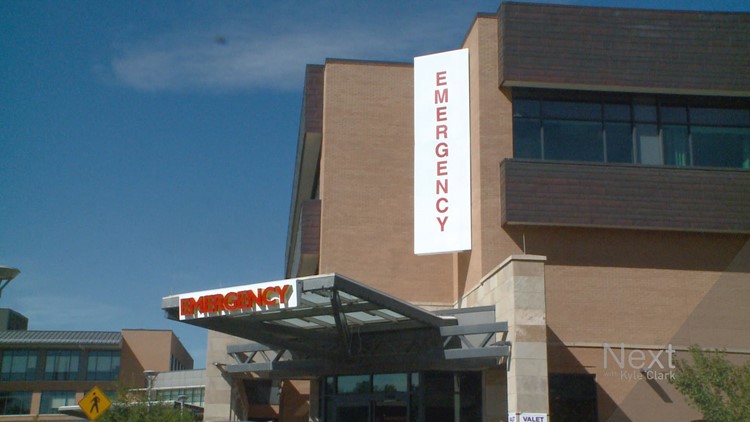DENVER — When we go to the doctor, they ask us how we feel. But how often do you ask how they feel?
Some doctors are silently suffering but are hesitant to ask for help when it comes to mental health.
"What the appearance is on the outside is not what's really going on in the inside," said Dr. Comilla Sasson, an emergency room physician and a former 9NEWS medical expert. "Every single person I've talked to knows someone who has taken their life."
She was referring to conversations she's had with her colleagues.
The American Foundation for Suicide Prevention said physicians are dying by suicide at a higher rate than the general population, and that 28% of medical residents experience a "major depressive episode during training versus the general population rate of 7-8%."
There are several factors that contribute to physician suicide rates, like burnout and post-traumatic stress disorder (PTSD).
Sasson said that she herself is familiar with that. She attributes it to the night that nearly two dozen patients came into her ER in 2012.
"From the Aurora shooting, I think a lot of us had PTSD from that specific night of working," she recalled.


Like so many other people, physicians, too, face a common barrier when it comes to seeking mental health help: stigma. Sasson said for some of her colleagues, it's a concern about getting caught in a system meant to protect patients.
"You feel there is this stigma around mental health, and I can't access care for myself because the medical board will find out, and I won't be able to practice," she said.
The data on this issue is lacking. The American Medical Association adopted a policy in June to better understand it, writing in a press release:
"With reports showing a lack of systematic reporting and inconsistencies in available data, the new policy offers recommendations on studying and collecting data that better reflect the actual incidence of and risk factors for physician, medical student and resident suicide in the U.S."
The closest Next with Kyle Clark could get to statistics in Colorado were on the state Office of Suicide Prevention website, where the state broke down suicide rates by broader professions, including dentists, pharmacists, physicians, surgeons, registered nurses, therapists, and veterinarians.
According to those numbers, 459 Coloradans who worked in these occupations. died by suicide between 2004 and 2018.
Dr. Pamela Wible is known in the medical community for being an authority on this issue. She's based out of Oregon and shares her story and her research across the country.
"I was a suicidal physician back in 2004," she said. "It was 100% occupational-induced frustration. I was forced to work in seven-minute increments trying to take care of complex patients."
According to her research, more than a million patients lose their doctors to suicide a year. Wible believes this issue needs to be addressed like an occupational hazard.
"I get emails every day from physicians around the world, that they just lost another colleague from suicide," she said.
Health care systems are talking about their doctors' mental wellbeing more, Sasson and Wible said, and some places like Denver Health are incorporating peer support programs.
The Colorado Medical Society also said it's important to figure out how to improve a doctor's work environment, which includes figuring out how much time they get to spend with each patient.
As for Wible, she said her turning point was when she asked for help and was very open with her patients about what she was going through. In turn, she was able to open up her own practice that allows for more time with each patient.
While Sassoon said the changes in the health care system are promising, there is a long way to go in shifting the culture.
"Are you OK? That's not something we ask our colleagues because we are all supposed to be OK all the time because we are taking care of other people. It's OK to say, 'actually, I'm not today'," she said.
>> If you are in crisis and need to speak to someone, please call the Colorado Crisis Services Hotline at 1-844-493-8255 or text "TALK" to 38255.
SUGGESTED VIDEOS: Next with Kyle Clark



